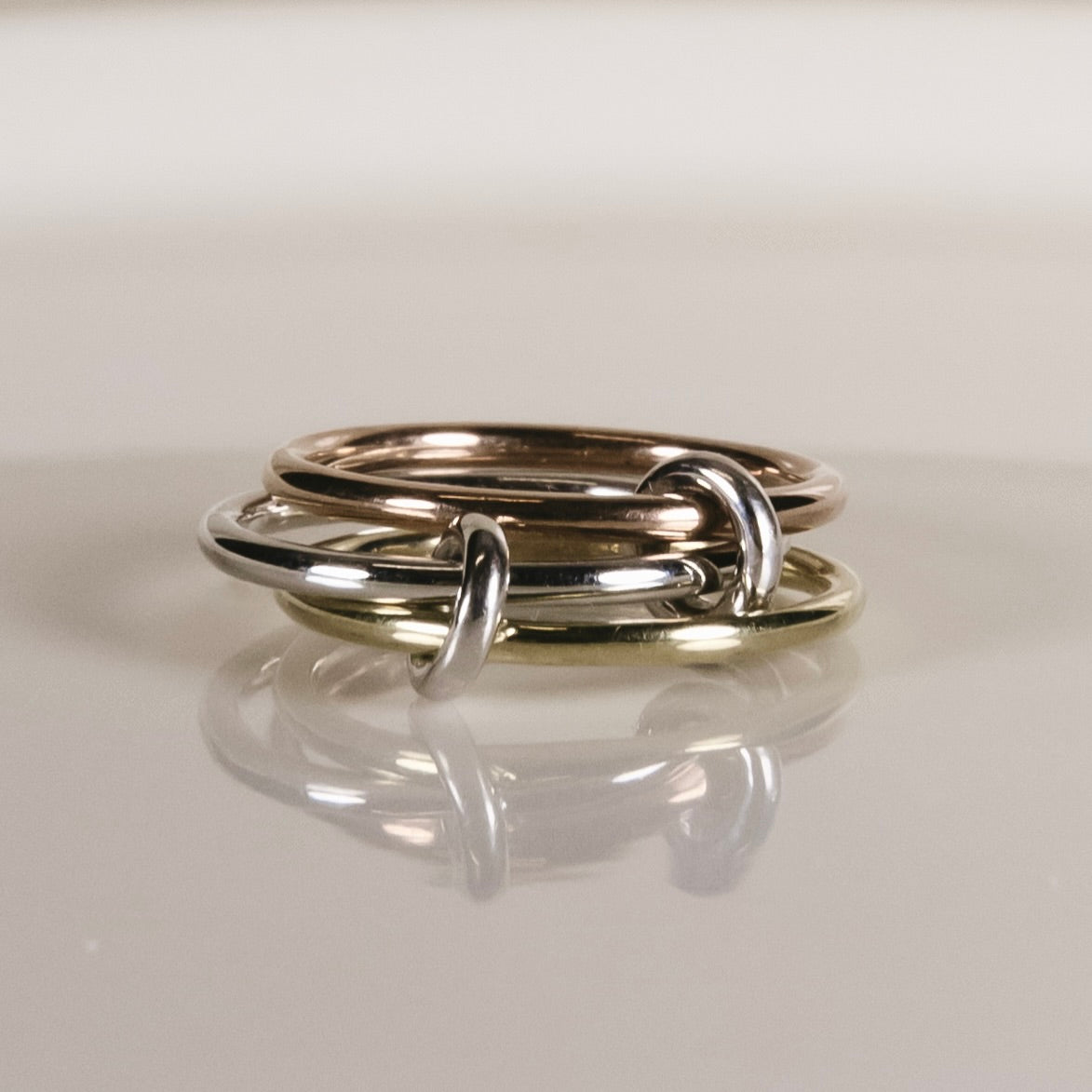Choosing the Right Metal for Your Engagement Ring: A Guide to Platinum, Gold, and Silver
Selecting the perfect metal for your engagement ring is just as crucial as choosing the right stone. With so many options available, it can be challenging to decide which metal best suits your needs in terms of style, durability, and budget. In this guide, we explore the key characteristics of platinum and gold (in its white, yellow, and rose variations) to help you make an informed choice. Understanding the unique properties of each metal will ensure that your ring not only looks stunning but also stands the test of time.
Platinum: The Epitome of Luxury and Durability
Platinum is celebrated for its exceptional hardness and durability, making it ideal for rings designed to endure everyday wear. It is denser than gold and silver, with a density of 21.45 g/cm³ compared to gold at 19.32 g/cm³ and silver at 10.49 g/cm³. This increased density contributes to platinum’s heftier feel and higher intrinsic value. Its natural, bright white sheen is one of its most desirable attributes, and unlike white gold, it does not require rhodium plating to maintain its colour.
Working with platinum is more labour-intensive, which adds to its cost. However, the benefits are clear: it’s purer, rarer, and has superior durability, making it a standout choice for those seeking exclusivity. Additionally, platinum’s hypoallergenic properties and resistance to tarnish make it suitable for individuals with sensitive skin.
Why Choose Platinum?
- Naturally whiter and more luminescent than white gold.
- Strong and durable, making it perfect for everyday wear.
- The most secure metal for setting diamonds and precious gemstones.
- Extremely pure, with only 5% other metals (typically ruthenium or copper).
- Exclusive and luxurious, symbolising true refinement.
- Resistant to tarnishing and will maintain its lustre over time.
- 100% hypoallergenic, ideal for sensitive skin.
Gold: Timeless, Versatile, and Available in Many Shades
Gold has been the preferred metal for jewellery for centuries due to its versatility, beauty, and resistance to tarnishing. Available in various colours—white, yellow, and rose—gold is highly malleable, making it perfect for creating intricate designs. Pure gold (24k) is too soft for most jewellery, so it is alloyed with other metals to enhance its strength. This alloying process also allows gold to take on different hues, depending on the metals used.
The purity of gold is measured in karats, where 24k is pure gold. Lower karat values (18k, 14k, and 9k) contain increasing amounts of alloyed metals, which not only strengthen the metal but also make it more affordable. As its purity decreases, the content of pure gold in the alloy changes: 9k = 37.5% pure gold, 14k = 58.3% pure gold, and 18k = 75% pure gold. Gold’s unique warm glow comes from its ability to absorb blue and violet light, reflecting only yellow—unlike most other metals, which appear white or greyish.
Why Choose Gold?
- Available in multiple colours: white, yellow, and rose.
- Comes in various purities (9k, 14k, and 18k) to suit different budgets and durability needs.
- Highly malleable, making it ideal for intricate and custom designs.
- Tarnish-resistant and perfect for everyday wear.
- The only precious metal with a naturally warm, yellow hue.
Note: At Ring Artisan, we only use 14k and 18k for engagement rings, as experience has shown that while 9k is harder, it is also more brittle and less reliable due to its low gold content.
Which Metal is Best for Your Engagement Ring?
Your choice of metal ultimately depends on your priorities—whether that’s durability, colour, or budget. If you want the most robust and luxurious option, platinum is the clear winner, offering exceptional strength and a naturally bright white sheen. For those seeking variety and affordability with a classic touch, gold (especially 18k or 14k) is a versatile option, available in multiple shades and suitable for both modern and traditional designs.
Pro Tip: If you love the look of platinum but want a more budget-friendly option, consider white gold. While it may require rhodium plating to maintain its colour, it offers a similar appearance at a lower cost.
By carefully considering the unique properties of each metal, you can select the perfect foundation for your engagement ring, ensuring it reflects both your style and stands the test of time.

